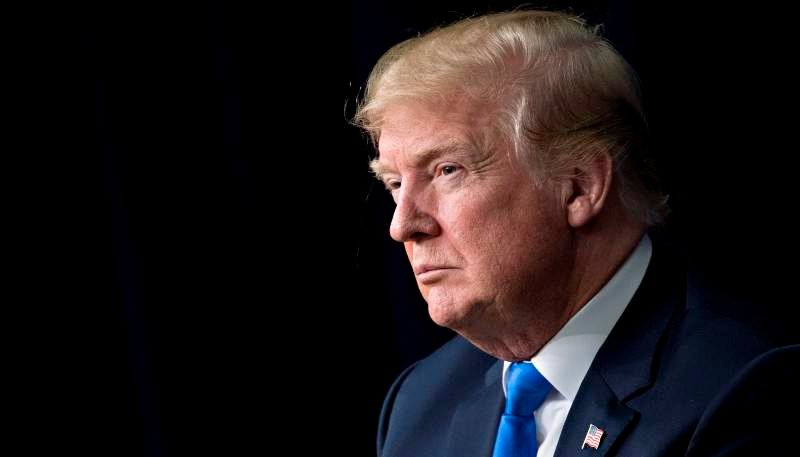Gold Silver Reports (GSR) – Economists write letter to the wrong address – As of last count, 1,157 economists had sent a letter to US President Donald Trump warning him not to repeat the mistake of the Smoot-Hawley Tariff Act of the 1930s. The one-page letter was a copy-and-paste job from the letter that economists sent to the then president in 1930 because the fundamental principle, according to them, has remained unchanged since then.
No honest economist would generalize theory across space and over time, without considering the context. In the 1930s, the Great Depression had many parents. When it suits them, economists point to the gold standard as the culprit. With considerable justification, some of us would like to point to the asset bubbles, excessive bank lending and the “Great Gatsby” decade of the 1920s as more important causative factors for the Great Depression. At best, the Smoot-Hawley tariff might have been a complementary factor. The tariffs were enacted in June 1930. By that time, the US and the global economies were already in a vicious downward spiral. Industrial production was down almost 20% by June and the Dow Jones Index down close to 40%. More importantly, as Barry Eichengreen and Kevin O’Rourke have shown, world trade fell more in 2008-09 than in the Great Depression, though there was no trade war in 2008-09!
Although economists are virtually unanimous in their support of free trade, the theoretical justifications are much less sound than they make it appear. Comparative advantage, the cornerstone of the benefits of trade, assumes full employment and frictionless movement of factors of production across sectors. These conditions are generally not true in practice. It is not easy for a middle-aged, laid-off steel worker to be retrained as a lab technician, much less a software engineer. Indeed, recent work by David Autor shows that the entry of China into the World Trade Organization (WTO) had a strong, negative impact on the long-term prospects of US workers displaced by Chinese competition. Economists will be quick to point out that these negative effects reflect the failure to implement adequate compensatory policies, but how many times have you seen 1,000 top economists write to the president urging more aggressive policies to help workers displaced by free trade?
The signatories to the letter cite the 1930s precedence. However, there is no precedence for dealing with a nation of 1.3 billion people that makes commitments with the conscious intent of not honouring them—whether it is on trade or technology matters. William A. Galston, who served during president Bill Clinton’s first term in office, wrote for The Wall Street Journal last August (“Second Thoughts On Trade With China”) that when China joined the WTO in 2001, it had promised to sign the Government Procurement Agreement, which requires government purchases to be made on a non-discriminatory and transparent basis. Sixteen years later, at the time of his writing the article, China had not yet done so. China pledged not to militarize the islands it had created in the South China Sea. But, it proceeded to do exactly that. “They tell us what we want to hear and then do the opposite,” says an unnamed German government official, in a Reuters news report. German government officials note too, wryly, that trade with China is win-win. That is, China wins twice. More than half the members of the German chamber of commerce in China are not planning new investments in the country.
Bryan Riley, director of the National Taxpayers Union’s free trade initiative, which coordinated the letter, had said that the anti-free trade message was not being driven by public opinion and that it was top-down. This is inconsistent with facts. The monthly Harvard-Harris poll tells a different story. From the March 2018 edition:
—55% said America’s trade agreements cost jobs and only 45% said that they created jobs
—61% approved of the president leveraging the threat of tariffs to win more favourable terms for America from trade agreements
—More than two-thirds (67%) said that the US should punish China for forcing American companies to give up technology secrets
—72% were either concerned or very concerned about the US losing technological supremacy to China
—75% said that the US should take steps (including tariffs) to correct the $375 billion trade deficit with China
—58% supported the imposition of tariffs on Chinese goods
—68% said that the American government should buy America-made goods and hire Americans
Economists have deservedly earned a reputation for being out of touch with reality for their failure to anticipate the 2008 crisis and read the mood of the people correctly on either side of the Atlantic in the last three years. They are cementing their reputation with this letter to the US president. They should reflect on why even 1% of the number of signatories do not emerge from China to tell their president to honour international commitments, and on their own reluctance to address a similar letter to China, despite its documented breaches of trust.
In short, the inability and unwillingness of 1,000 learned men and women to call out a nation that plays either by its own rules or none at all, with no recourse to others against such unilateralism, do not provide good soil for the growth of world peace. – Neal Bhai Reports
